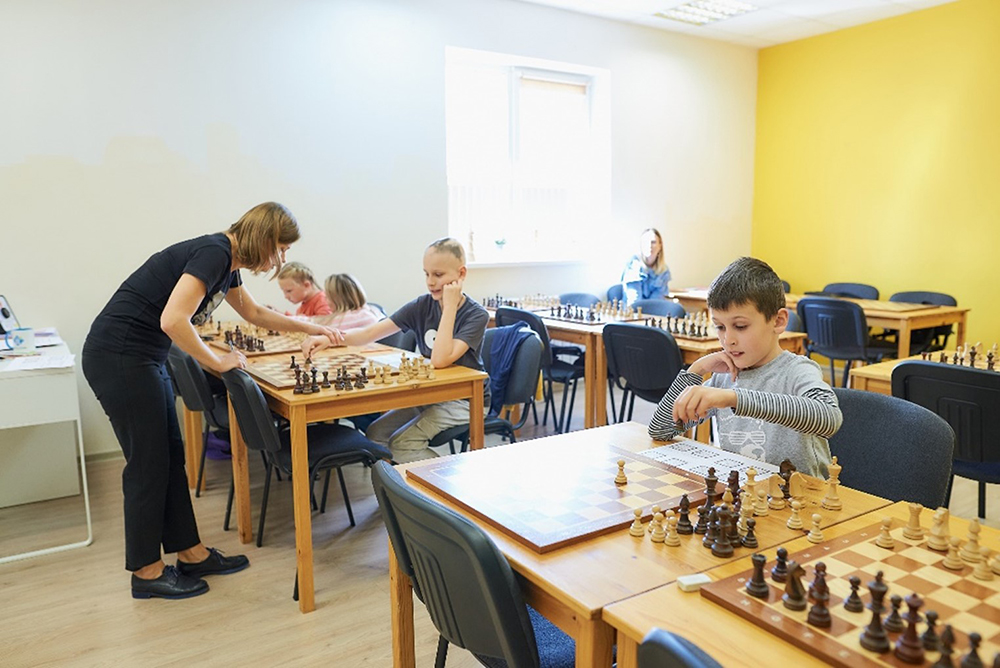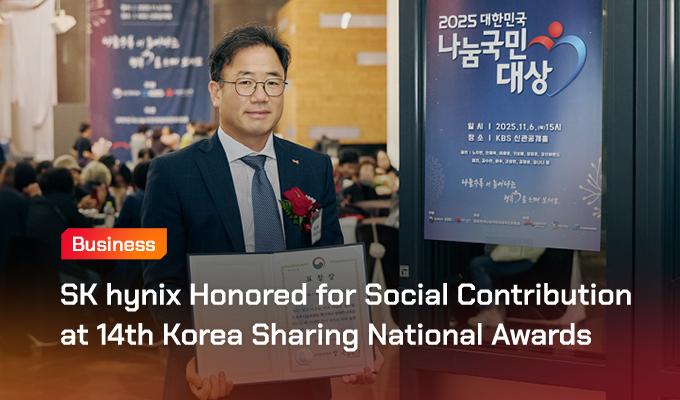In a continuation of its Wings of Happiness work in Belarus, the SK hynix CSR team founded a chess club in 2019 for children with special needs to provide a place to meet new people in the area and grow their skills through friendly competition. And since the launch of Netflix’s hit show The Queen’s Gambit, which followed the life of a chess prodigy, more and more children the world over are looking to take up the classic game, and partly why the club is now thriving and changing more lives in the European nation.
What makes chess so popular to people from all walks of life is how easy it is to pick up, but also how difficult it is to master. A unique, strategic game of logic that combines elements of science, sports and art, scientists have even proved how this ancient game stimulates various types of activity in people with disabilities, particularly those on the autism spectrum, which means it’s actually much more than a game.

“The game can help a child with autism express themselves, get in touch with the outside world, reveal abilities, logic, orderliness of thinking, facilitate adaptation to the world around them, and ensure effective adaptation in society,” explained Tatiana Gerasimova, a tutor in the chess club.
Held weekly from September to May, the children work in groups of three or four as they learn to play the game. The educational process is divided into four large blocks: getting to know the board and pieces themselves; learning about the “check” and “checkmate” concepts and the ultimate objective of the game; and finally, studying the techniques and rules of behavior during the game. From there, students can begin to think strategically about the movement of pieces across the board – striving to plan two, three and four steps ahead.

It goes without saying that this would only have been possible with the amazing work of our teachers and the determination of students. Gerasimova stressed the importance of supporting disadvantaged children by embracing their individuality: “My main goal is to support children by helping them believe in themselves and their strengths, to cope with emotional stress and find ways out of difficult situations,” she said. “I hope to create an atmosphere of acceptance, and we do our best here to ensure children enjoy the classes without worrying about making mistakes. We adapt to the capabilities of each student, individually selecting ways to motivate them and make sure they find success.”


The results with children have been incredible, making a real impact on their confidence, concentration and strategic thinking.
Natalia Ryzhenkova, the head of SK hynix memory solutions Eastern Europe, says:
“Most importantly, we’re seeing results. Both teachers and parents say their children are changing for the better. They’re more bold, decisive and really enjoy getting better at the game with friends. While their aggression has decreased, their attention span, strategic thinking and planning has improved which helps them learn better in other classes.”
Nataliya Popova, an experienced coach and International Master, backed the impact these classes were having up: “Soon our club will be two years old, and over these two years I’ve been lucky enough to witness so many of our students grow from this opportunity. These children better understand what they should do and can perform some tasks on their own, playing chess with each other and making conversation during break times without help. The parents are very grateful because they see their kids developing by becoming more courageous, independent, and talkative, and these improved abilities, including greater concentration, extend to life outside the club.”
SK hynix supports this project throughout the course of the school year, paying for the teachers’ work, providing supplies and materials, organizing “master classes,” as well as congratulating the children on their accomplishments with gifts and awards.







